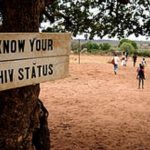- Mike Brewer
MiSoC research shows that data from household surveys may not give the whole picture of the UK’s income inequality levels

ISER researchers discuss their work in these blog posts.

MiSoC research shows that data from household surveys may not give the whole picture of the UK’s income inequality levels

An insight into pioneering work by MiSoC’s Adeline Delavande on the measurement of subjective expectations. She pushes forward the agenda of asking decision-makers directly about their subjective expectations, and, with collaborators, has pioneered the elicitation of subjective expectations in developing countries.

In a new blog for Child of our Time, Dr Cara Booker explains her research with Professor Yvonne Kelly of the ESRC International Centre for Lifecourse Studies at UCL, which tracks the health and happiness of the UK’s children

MiSoC’S Professor Susan Harkness and Dr Silvia Avram write about the findings of their two-year research project on the effect of the National Living Wage on wages for the Low Pay Commission

In a short video for VoxDev, Professor Sonia Bhalotra discusses her research on how a decline in child mortality influences women’s choices of labour market participation, marriage, and fertility.

Writing for the Social Policy Blog, a study by Amy Clair and researchers from the University of Lancaster and King’s College London find that over four-fifths of food bank users in Britain were experiencing at least one significant housing issue

Writing for the New Statesman, Angus Holford discusses the effects of free school meals and the origins of the policy

Dr Cara Booker explains the findings of a pioneering new study using biological markers collected in blood samples alongside socio-economic data, to understand how working patterns exacerbate or alleviate stress in working mothers

Dr Silvia Avram’s study funded by the Nuffield Foundation looks at the impact of pay insecurity on employment

Dr Angus Holford describes ISER’s innovative study of a unique cohort of current students to find out how much they understand about our complex student funding system and what they think would be fair for future students

Dr Amy Clair describes new research on who uses food banks and finds a link between high rents and food poverty

Professor Mike Brewer is leading an innovative project to create a new open access model for testing UK tax and benefit policies